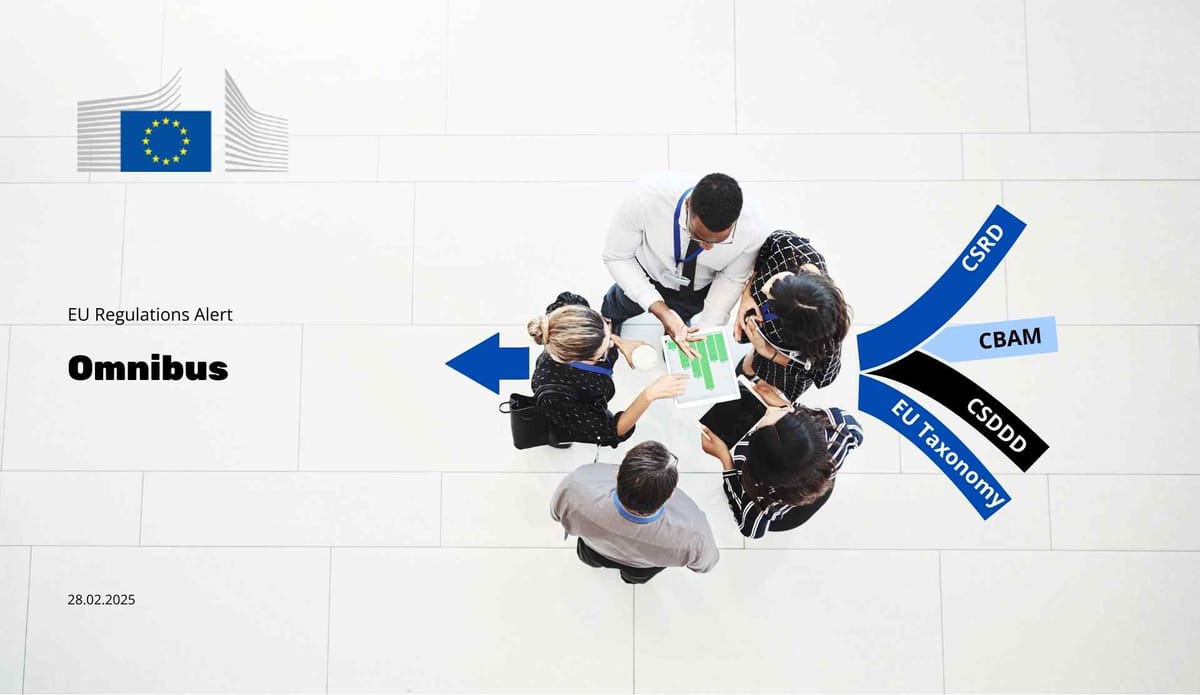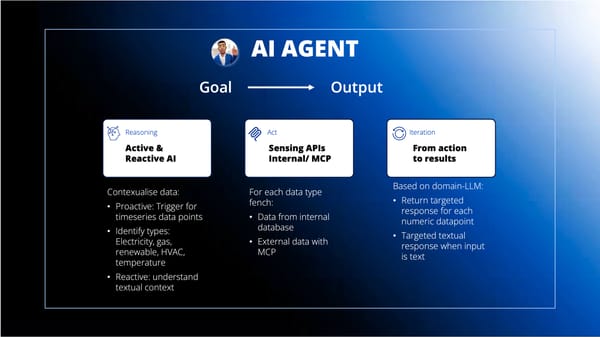Omnibus simplifies sustainability reporting
The EU "Omnibus" packages, introduced in Feb 2025, aim to reduce regulatory burdens by up to 25% (35% for SMEs), saving €6.3B yearly. Updates to CSRD, CSDDD, CBAM, and EU Taxonomy simplify requirements, focus on larger firms, and delay some obligations, easing challenges for businesses.

The recent EU Competitiveness Report emphasized the need to boost innovation, decarbonize, and increase security by reducing dependencies. In response, the EU introduced the "Omnibus" packages in February 2025 to reduce mandatory requirements for regulations such as the Corporate Sustainability Reporting Directive (CSRD), Corporate Sustainability Due Diligence Directive (CSDDD), the Carbon Border Adjustment Mechanism (CBAM), and EU Taxonomy Regulation. These packages aim to reduce the administrative burden by at least 25%, targeting 35% for SMEs, helping companies cope with uncertainties like unpredictable supply chains, geopolitical tensions, climate events, and rising energy costs. The packages could save €6.3 billion annually.
CSRD update
The sustainability reporting requirements for CSRD now apply only to companies with more than 1,000 employees and a €50 million turnover or a balance sheet of more than €25 million. This excludes 80% of companies from the scope of the CSRD. Additionally, reporting requirements for some companies (due in 2026 and 2027 on their previous fiscal year) are postponed until 2028, and future sector-specific reporting standards will not be required. Certain data points of European Sustainability Reporting Standards (ESRS) that are considered less important for general sustainability reporting have also been removed.
CSDDD update
Companies with over €450 million in turnover and more than 1,000 employees in the EU are now required to focus only on direct suppliers, with mandatory assessments occurring every five years instead of annually. There is also a shield for smaller direct suppliers (less than 500 employees), who are not required to provide sustainability performance information beyond using Voluntary Reporting Standards for SMEs (VSME). The requirement to terminate business relationships as a last resort has been removed. Furthermore, civil liability portions of the CSDDD, which previously made companies liable for adverse impacts on the environment or society stemming from their supply chains, have been eliminated unless there is a clear indication of harm.
CBAM update
It proposes a new threshold, eliminating 90% of importers from the scope of CBAM. The Omnibus allows for the delegation of CBAM declarations to third parties, such as consultants or environmental experts. Simplifications include a de minimis threshold (under 50 tonnes/year), eased processes for large importers, delayed certificate purchases to February 2027, and reduced certificate holding from 80% to 50%, strengthening rules to prevent circumvention and abuse.
EU Taxonomy
The regulation is only mandatory for large firms with over €450 million turnover. The proposed changes reduce the required data points by nearly 70% using simplified templates by combining DNSH and nuclear/fossil gas reporting and removing separate objective reporting, with clarification of Appendix C. It also exempts companies from assessing the Taxonomy-eligibility and alignment of their economic activities that are not financially material for their business.
Source: European Commission





